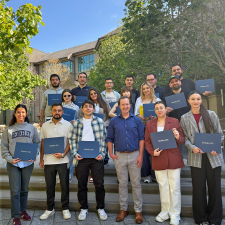The fight against corruption is one of the important pillars of democracy. One of the reasons for the deterioration of its perception in Armenia in recent years is the insufficient process of reforms in the judicial and legal system, the newly revealed manifestations of systemic corruption, which are especially visible in the various widespread forms of legislative and administrative corruption. The CSOs Anti-Corruption Coalition of Armenia (hereinafter referred to as the Coalition) has repeatedly expressed this in its statements (https://aac.am/en/6968.html, https://aac.am/en/7255.html, as well as speeches and discussions on various platforms (https://aac.am/en/7170.html, https://aac.am/en/7815.html).
In the context of the aforementioned, the lion’s share of grievances among persons related to the judicial system is related to the issue of the duration of court cases. Indeed, in the conditions when the average duration of court case investigation, including all court instances, can last from 2 to 3 years, and when considering the issue in the Constitutional Court, this period can be extended by another 1-2 years, then there is no need to talk about the implementation of the right to effective judicial protection of individuals and legal entities of the Republic of Armenia, guaranteed by the Constitution of the Republic of Armenia, since in many cases the issue of legal protection loses its relevance until the end of the investigation of the case, the court decisions made become outdated.
The state has taken some significant steps towards the solution of that problem in the field of civil proceedings and this already has a certain impact on the terms of the examination of cases. However the same cannot be said about the field of administrative proceedings, where the terms of the examination of cases are gradually getting longer and longer, and often, the rights of individuals are left without defense due to this fact, анд ин аддитион failure to issue judicial acts within a reasonable period leads to the emergence of many new problems.
The created situation is perhaps illogical, because the administrative court should be the instance that examines the fewest cases in terms of workload. It follows from the norm of Article 6 of the RA Constitution, according to which “State and local self-government bodies and officials shall be entitled to perform only such actions for which they are authorized under the Constitution or laws.” Inadequate implementation of this norm by responsible public servants leads to administrative corruption, as a result of which, on the one hand, the constitutional right to proper administration of individuals and legal entities of the RA and the possibility of its implementation is violated, and on the other hand, the number of appeals to the court increases unjustifiably, which significantly burdens the courts. In turn, the so-called presumption of legality derives from this provision, according to which decisions or actions of state authorities and local self-government bodies are legal, unless they are declared illegal by the court.
Thus, in a legal state, state authorities and local self-government bodies must act within the limits of the law and only in rare cases can a case with problematic issues reach the court. However, our reality suggests the opposite picture. State and local self-government bodies often act illegally and people have to apply to the court to protect their rights. The proof of this is the increasing number of cases examined in the administrative court, which leads to the overloading of the court.
As a rule, the duration of the examination of cases in the administrative court is close to one year, and in the appellate court it is close to two years, that is, the total duration of the case can reach an average of three years, without taking into account the deadlines for annulment and new examination, and later also the deadlines for applying to the constitutional court. In such conditions, the implementation of the constitutional principle of effective judicial protection cannot be ensured, because in many cases such deadlines lead to the impossibility of restoring the violated rights.
We can cite as an example, dispute cases on construction permit. The construction permit is issued for a maximum period of 3 years and if it is disputed, its operation is not suspended without submitting an additional petition and satisfying it, that is, the developer continues construction. Therefore, if the case is investigated for 3 years, then during that time the developer can complete the construction and build, for example, a multi-storey building. However, if the court considers that the construction permit was illegal and it is declared invalid, then it will turn out that the apartment building is a voluntary structure and is subject to demolition. In such conditions, it becomes problematic to execute a court order, because it is not clear how the building should be demolished, when the existing apartments in it have already been sold, and in case of demolition of the building, the residents will be deprived not only of the apartments, but also of the money paid for them. In such situation, in addition to violation of the rights of the persons who challenged the construction permit, the rights of the persons who acquired an apartment in the building constructed on the basis of an illegal construction permit are violated as well. And such examples are numerous.
Obvious facts of administrative corruption appear especially in legal relations arising from violations of traffic rules. First: due to the lack of proper administration in the system of the Ministry of Internal Affairs of the RA as well as due to the long period of trials, RA citizens do not even try to appeal these acts in an administrative order and later get involved in court proceedings in cases of appeals of administrative fines in the amount of AMD 3000-5000. This is because the administrative and court costs in that case exceed from 10 to 100 times the cost of the administrative fine and in addition, the material, as well as non-material and moral damages suffered during the process are not compensated (we can mention as an example cases VD/6385/05/22 and VD/6386 /05/22). On the other hand, the legal collisions (inconsistencies) in RA legislation (which is, in fact, a manifestation of legislative corruption, about which the Coalition has repeatedly spoken about, https://aac.am/5277.html) lead to such a result, where the administrative court is making conflicting decisions by different judges of the same instance, and this in nits turn leads to the extension of the trial period due to the illegal decisions made in the appellate, cassation and constitutional courts, as well as the issues of disciplinary proceedings of these judges in connection with the discussion in the Supreme Judicial Council (example, case of the Supreme Court /1100/05/20, VD/8824/05/19, VD/2875/05/24, VD/2519/05/24).
Of course, the law provides a procedure for compensation for damages caused by illegal administration, but this procedure is so complicated that a person should think at least seven times before starting such a procedure. In particular, the person shall first achieve the fact that the court recognizes the administrative act or the action/inaction of the administrative body as illegal. After that, he should apply to the body whose act or action/inaction was recognized as illegal, after his application is rejected or left unanswered, he should apply to the court once again, pass through the same judicial process in an attempt to receive compensation for the damages caused. In other words, under the existing conditions, the two court processes can last an average of 6 years. In such circumstances, even if the person receives compensation for damages (which we are sure will not be complete), then no such compensation can be effective.
In addition, we can talk only about real damage compensation, because the law does not provide for a real possibility for compensation of non-material (moral) damage in administrative relations. The Constitutional Court of the Republic of Armenia in the case SDO-1383 on 07.11.2017 had found that the legislator is obliged to fill that gap in the law and relations should also provide for the possibility of compensation for moral damages in administrative. However, the legislator actually ignored that decision.
Such a situation is also due to the fact that there are no clear responsibility mechanisms provided by the RA legislation for illegal activities by state and local self-government bodies and their employees. In this case, the relevant officials know that whatever they do, they will not bear any responsibility to the citizens for making an illegal decision or action. That circumstance significantly promotes the illegal activity of state and local self-government bodies (which leads to the spread of administrative corruption), because if the administrative body or official is not responsible for breaking the law, it creates grounds for arbitrariness.
As a result of all this, a ridiculous situation has been created, when state and local self-government bodies simply ignore court decisions, formed court practice and court precedents, and regardless of the fact that the court has already pointed out the illegality of this or that decision or action/inaction, they continue make the same illegal decisions and perform the same illegal actions. As a result, people are forced to apply to the court to restore the violated rights, which doubles the burden on the administrative court. Thus, a chain of vicious phenomena has been created, from which no steps, at least visible, are being made at the moment.
We believe that in order to solve the problem, the following steps should be implemented consistently.
First: it is absolutely necessary to eliminate the existing legal conflicts in the RA legislation as completely as possible. Further, the process of collecting damages caused by illegal administration should be simplified for individuals and legal entities and the court should be provided the opportunity to resolve this issue within the same proceedings. In addition, the institute of compensation for moral damage should be introduced in the administrative proceedings, because moral damage is more relevant in cases of illegal administration by the state and local self-government bodies, as a result of which the person’s belief that the state and local self-government bodies act legally is undermined. It is necessary for the RA legislation to provide for clear and specific measures of compensation for material and non-material damages caused to the RA citizens and legal entities due to improper administration, including mechanisms for compensation of those damages directly from the personal funds of the persons who made the illegal decisions.
Thus, the pillar of solving the problem of workload of the administrative court is the introduction of the institute of responsibility of state and local self-government bodies, as a result of which these bodies will bear real material responsibility for their illegal decisions or actions/inactions. Otherwise, the problem will become increasingly complicated and may lead to an increase in the workload of administrative courts, which may make the existence of that court meaningless.
VARDAN JILAVYAN, lawyer, member of the RA Chamber of Advocates
MOVSES ARISTAKESYAN, President of the “Center for Economic Rights” NGO,
Chairman of the Governing Board of the CSO Anti-Corruption Coalition of Armenia















